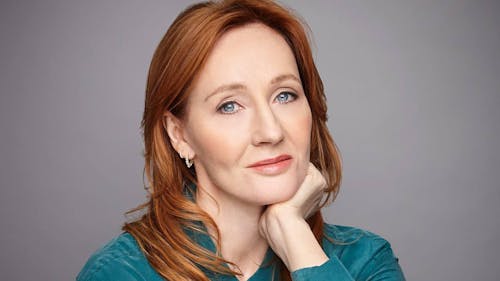COMMENTARY: J.K. Rowling's legacy casts shadow over 'Harry Potter'
Commentary

If you are like me, you had some sort of nerdy phase in the early stages of life that seemed to shape how you approach adulthood. For me, "Harry Potter" was my choice because my oldest brother already had all seven books. I grew up idolizing characters and waiting on my Hogwarts letter.
So, you could imagine that when I found out that the woman that created my favorite fantasy universe is transphobic, sexist and racist, I was pretty disappointed.
J.K. Rowling uses her Twitter account in the same way that a 13-year-old does. AKA, she tweets whatever comes to her mind without putting much thought into it. More recently, she has taken to Twitter to express her feelings about the transgender community. Rowling started by commenting on the use of the phrase “people who menstruate."
To Rowling, the only people who menstruate are cisgender women, which alienates transgender women and invalidates the experiences of transgender men. Multiple cast members spoke out about the tweets, including Emma Watson, who starred as Hermione Granger. Watson took to Twitter to state that she supports the transgender community and wants transgender "Harry Potter" fans to know that they are seen and loved.
“Trans people are who they say they are and deserve to live their lives without being constantly questioned or told they aren't who they say they are. I want my trans followers to know that I and so many other people around the world see you, respect you and love you for who you are,” Watson tweeted.
While her comments about the transgender community are Rowling's most blatant acts of bigotry, there are hints of it within the "Harry Potter" books and movies.
Even with the overall lack of diversity, Rowling still manages to sneak some racism and ethnic stereotyping into her story. Between the only Asian character being named Cho Chang and the only Irish character having a knack for blowing things up, Rowling pulled out all of the stops.
Cho has a disappointing storyline altogether. The movies portray her as a traitor to her friends and nothing more than a girl whose boyfriend died. In reality, Cho was a member of the Ravenclaw quidditch team and a powerful witch.
Because there was little to no interaction between female characters in the books, the only outlook we got on these women was through Harry Potter’s eyes. This in itself creates many issues with how readers see female characters.
Rowling takes Cho from being a smart witch who plays a violent contact sport to a nervous girl that cannot seem to do simple magic around the boy she likes. The movies brush over the fact that she joined the student organization Dumbledore’s Army in her sixth year after her parents pleaded with her to avoid the group and, although she did eventually expose the club, the film did not make it explicit that it was due to a truth serum.
Cho was not the only female character that got the short end of the stick in the movie adaptations.
Ginny Weasley, one of the more fiery characters in the books, was made to be a shy girl whose only personality trait was liking Harry. In reality, Ginny was a powerful witch and a fantastic quidditch player who went on to play the sport professionally.
Many fans of the series were disappointed in the way Ginny was portrayed in the movies and believe that Rowling allowed for a strong female character to be erased from the screen.
The way Cho and Ginny were portrayed in the movie adaptations of Harry Potter is a perfect example of how the mainstream media sees women. We can be strong on our own time, but when there is a man involved, we must crumble at their feet and beg for their guidance and approval.
Elana Ortiz is a School of Arts and Sciences sophomore majoring in journalism and media studies with a specialization in sports journalism.
YOUR VOICE | The Daily Targum welcomes submissions from all readers. Due to space limitations in our print newspaper, letters to the editor must not exceed 500 words. Guest columns and commentaries must be between 700 and 850 words. All authors must include their name, phone number, class year and college affiliation or department to be considered for publication. Please submit via email to oped@dailytargum.com by 4 p.m. to be considered for the following day’s publication. Columns, cartoons and letters do not necessarily reflect the views of the Targum Publishing Company or its staff.



